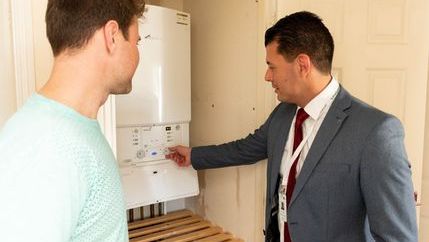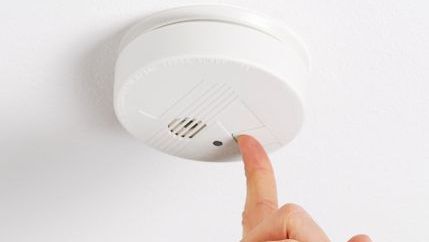Electrical safety FAQs for landlords
What are the electrical safety standards?
All fixed electrical cables and equipment will need to be inspected and tested by a qualified person in accordance with the 18th edition of the wiring regulations.
This includes appliances that are fixed directly to the electrical supply, such as showers or fitted kitchen appliances. Once a qualified person has carried out their inspection and tests, they will provide an Electrical Installation Safety Report.
What is an Electrical Installation Safety Report?
This report includes the results of the inspection and test carried out and will state the date for the next inspection and test.
Typically, an Electrical Installation Condition Report (EICR) is the type of safety report you will receive but there are alternatives.
Which tenancies are affected?
Any new fixed-term tenancy that starts on or after 1 July 2020 will need to adhere to electrical safety standards. For existing tenancies, you have until 1 April 2021. Be aware that because the rules came into force on 1 June 2020, tenancies signed on or after 1 June 2020 which start on or after 1 July 2020 should comply with the regulations.
The electrical safety standards apply to all tenancies in residential property unless excluded.
Renewed tenancies
A renewed fixed term tenancy is a new tenancy, therefore from 1 July 2020 all renewed fixed-term tenancies need to adhere to electrical safety standards.
Statutory Periodic tenancies
A tenancy that ends and is renewed as a Statutory Periodic tenancy is classed as a new tenancy and from 1 July 2020 need to adhere to electrical safety standards.
Contractual Periodic tenancies
Contractual Periodic tenancies that state that a rolling monthly tenancy will commence at the end of the fixed-term are considered the same tenancy. Therefore, you have until 1 April to adhere to electrical safety standards.
What is a qualified person?
Someone who is competent to undertake the inspection, testing and any remedial work in accordance with the electrical safety standards. Usually this person will be part of a competent persons scheme, for example NAPIT or NICEIC.
What do I need to do once I have the Electrical Installation Safety Report?
Once you have the report you must:
- Supply a copy to each existing tenant of the property within 28 days of the inspection and test
- Supply a copy of the most recent report to any new tenant before they move in
- Supply a copy of the most recent report to any prospective tenant within 28 days of receiving the request
- Retain a copy of the report and give it to the qualified person carrying out the next inspection
- Supply a copy to the local authority within seven days when requested
How long does the Electrical Installation Safety Report last?
Under the regulations, every fixed electrical installation at the property must be inspected and tested at least every five years by a qualified person.
What happens if the electrical installation needs further work to meet the standards?
This is called remedial work and should be carried out by a qualified person within 28 days of the report, or the period specified in the report if less than 28 days.
Once completed, you should receive written confirmation from the qualified person that the remedial work has been carried out. This will then need to be sent with a copy of the report to the existing tenant and your local housing authority.
Does my electrical installation need to comply with the 18th edition of the Wiring Regulations?
No, not if it is still deemed to be safe. Landlords with existing reports should check these reports and contact the inspector in order to decide whether the electrical installation complies with electrical safety standards.
If my certificate says ten years, do I still need to renew every five years?
If an existing certificate was done longer than five years ago, regardless of whether it is valid for ten years, it will not be applicable for these regulations. Consequently, to comply with the electrical safety standards the existing EICR must be less than five years old (dated back five years from when the tenancy agreement was signed).
What is the penalty for breaching the rules?
Local authorities can issue a fine up to £30,000. Before imposing a financial penalty, the local authority must serve a Notice of Intent within six months from when the landlord is in breach outlining the amount, reasons and right to appeal.
More landlord safety guides
Gas safety checks for landlords
Research has shown that more than one in three private landlords did not know it was their responsibility to get gas appliances checked.
Safety responsibilities for landlords
To help you get to grips with what’s expected, we have outlined the main safety concerns you must be aware of and the legal obligations you must adhere to.
Need more advice? Find your local ARLA Propertymark Protected letting agent

Turn to your local ARLA Propertymark Protecting letting agent for further guidance on adhering to electrical safety standards. They will know the measures you need to take and can take care of contractors and all the necessary paperwork.





